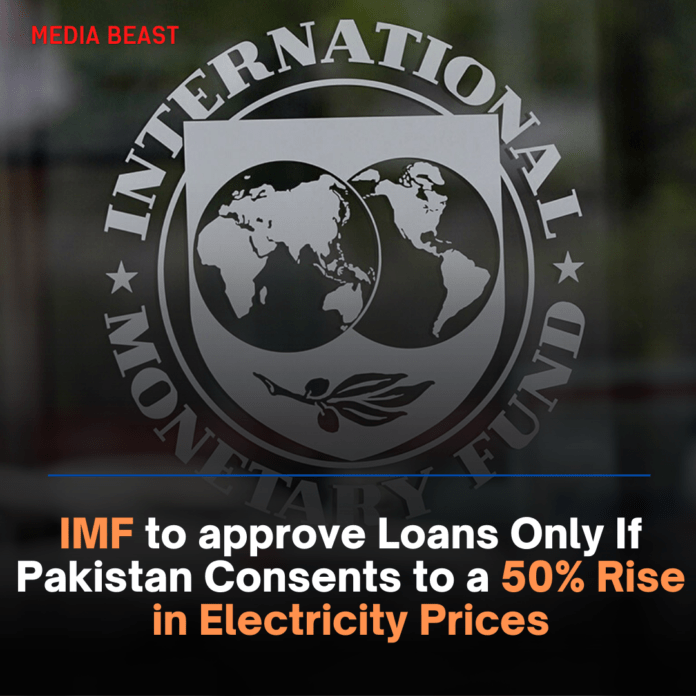The International Monetary Fund (IMF) is demanding that Pakistan withdraw unbudgeted electricity subsidies and increase power rates by 50% as part of their negotiations, which are scheduled to end in three days.
The government team has been given permission by Prime Minister Shehbaz Sharif to accede to the IMF’s demand to increase the electricity tariff; the lender wants to increase the rate by 50%, while the government is only willing to go up to 20-33 percent.
While the IMF is refusing to compromise on prior commitments, Pakistan is gradually realizing that in order to access more than $1 billion in bailout funds, it will have to accede to all of the lender’s demands.
The PM has directed his team to achieve results via video conference. Sources familiar with the discussions say that while the rise in the upper slab will be much higher, the base tariff could increase by an average of Rs 7.74 per unit. The premier is nevertheless still holding out hope that the Power Division can convince the IMF to scale back the suggested increase.
Following the PM’s approval, the updated circular debt management plan (CDMP), which details price increases resulting from quarterly and annual tariff adjustments, will now be shared with the IMF today. Relevantly, it has not yet been established whether the PM agreed in principle to the highest possible price increase for consumers with higher incomes.
As was previously mentioned, the government can only increase the power tariff by 33 percent, while the IMF demands a 50 percent increase. The negotiations started on January 31 and will continue through February 9 in Islamabad with the IMF team present.
The IMF claims that it has been invited to Pakistan by Prime Minister Shehbaz Sharif and that it expects the government to carry out all outstanding measures, including tax increases. Finance Minister Ishaq Dar and the Fund’s Mission Chief Nathan Porter might get together on the same day to finalise things if the lender accepts the government’s proposals.
Several options for a tariff increase were presented to the PM, according to sources in the Power Division, including a quarterly increase of Rs. 4.26 per unit and an average increase of Rs. 7.74 per unit in the basic tariff. According to IMF guidelines, the average base tariff, which is currently around Rs. 24 per unit, could increase to Rs. 32 per unit by June 2023.
It will represent the second increase in the current fiscal year once it is put into effect, as the government has already raised the base tariff by Rs. 7.91 for each unit. The first hike did not halt losses, forcing people to switch to alternative energy sources. Things will get worse and most people won’t be able to handle the subsequent hike.




